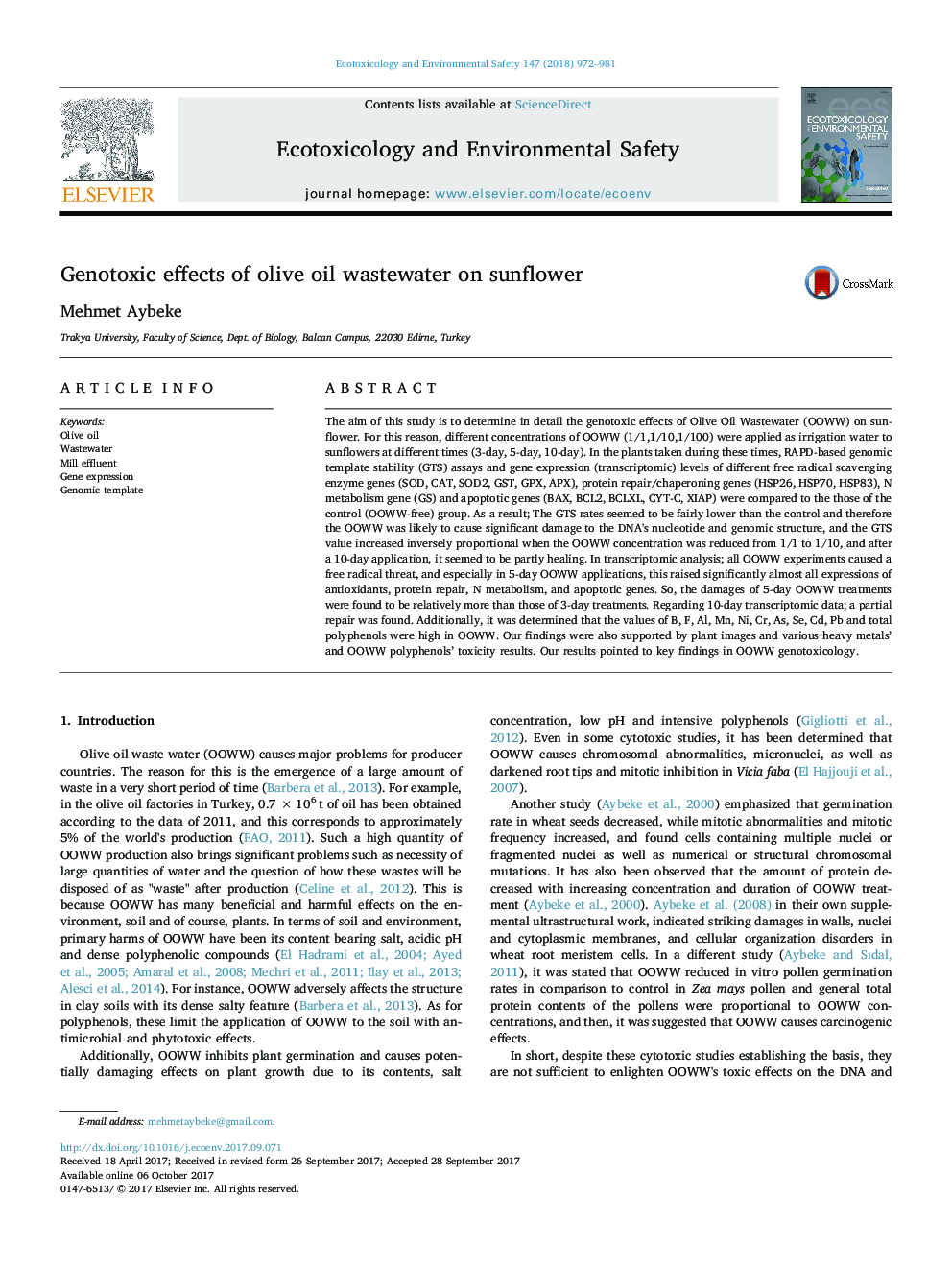| کد مقاله | کد نشریه | سال انتشار | مقاله انگلیسی | نسخه تمام متن |
|---|---|---|---|---|
| 5747844 | 1618917 | 2018 | 10 صفحه PDF | دانلود رایگان |
- OOWW has a significant level of plant stress especially 5-day treatments.
- OOWW constitutes a continuous free radical threat.
- OOWW causes higher expressions of almost all investigated genes.
- 5-day OOWW treatments' damages have been found to be relatively more than 3-day.
- Based on 10-day gene expression data; a partially repairmen is found.
The aim of this study is to determine in detail the genotoxic effects of Olive Oil Wastewater (OOWW) on sunflower. For this reason, different concentrations of OOWW (1/1,1/10,1/100) were applied as irrigation water to sunflowers at different times (3-day, 5-day, 10-day). In the plants taken during these times, RAPD-based genomic template stability (GTS) assays and gene expression (transcriptomic) levels of different free radical scavenging enzyme genes (SOD, CAT, SOD2, GST, GPX, APX), protein repair/chaperoning genes (HSP26, HSP70, HSP83), N metabolism gene (GS) and apoptotic genes (BAX, BCL2, BCLXL, CYT-C, XIAP) were compared to the those of the control (OOWW-free) group. As a result; The GTS rates seemed to be fairly lower than the control and therefore the OOWW was likely to cause significant damage to the DNA's nucleotide and genomic structure, and the GTS value increased inversely proportional when the OOWW concentration was reduced from 1/1 to 1/10, and after a 10-day application, it seemed to be partly healing. In transcriptomic analysis; all OOWW experiments caused a free radical threat, and especially in 5-day OOWW applications, this raised significantly almost all expressions of antioxidants, protein repair, N metabolism, and apoptotic genes. So, the damages of 5-day OOWW treatments were found to be relatively more than those of 3-day treatments. Regarding 10-day transcriptomic data; a partial repair was found. Additionally, it was determined that the values of B, F, Al, Mn, Ni, Cr, As, Se, Cd, Pb and total polyphenols were high in OOWW. Our findings were also supported by plant images and various heavy metals' and OOWW polyphenols' toxicity results. Our results pointed to key findings in OOWW genotoxicology.
Journal: Ecotoxicology and Environmental Safety - Volume 147, January 2018, Pages 972-981
